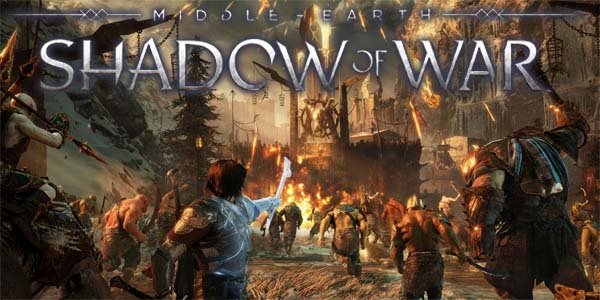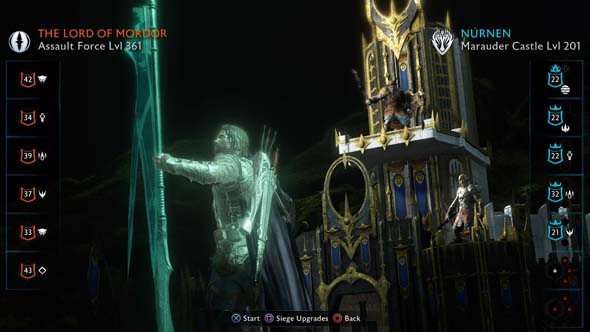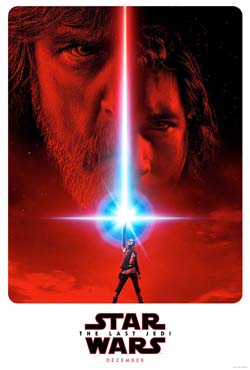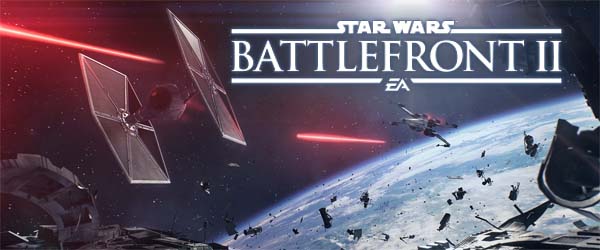
The Raiders and Las Vegas announced months ago that the deal to move the Raiders to my hometown of Las Vegas has been finalized. I didn't write about it at the time because there was still a lot of unknowns. As you all may know, I was not initially receptive to the stadium financing plan. The city of Las Vegas went all in and basically gave the Raiders almost everything they asked for. Las Vegas would raise room taxes on tourists in order to pay for the largest portion of the stadium's construction budget. The Raiders looked like they'd be given numerous tax breaks (including tax-free bonds and property tax exemptions). It looked like the Raiders would even get out of having to pay rent for the stadium (which is supposed to be owned by the Las Vegas Stadium Authority, rather than by the Raiders themselves).
Being a UNLV alumni and a UNLV football season ticket-holder, a lot of my early frustrations were with the Raiders' (and the city's) insulting treatment of UNLV's football team. UNLV had been unsuccessfully lobbying for years with the city of Las Vegas to get funding for a new stadium. That UNLV stadium came close to happening. It was hoped that having a shiny new stadium on or near campus would increase attendance, allow UNLV to recruit higher-caliber ball-players, and maybe even potentially attract an NFL team (like the Raiders, Rams, or Chargers) to relocate to Las Vegas. Those plans fell apart, as the city simply couldn't afford such a project, and the Rebels didn't help matters by continuing to disappoint with two-win seasons. Then the Raiders come along, and not only does the city give them virtually everything they ask for, but the Raiders also tried to screw UNLV out of even being able to realistically use the stadium that was being mostly paid for by public funds.
UNLV had been unsuccessfully lobbying for a new stadium [LEFT] for years,
then the Raiders [RIGHT] show up and the city bends over backwards to accommodate them.
The Raiders initially wanted UNLV to pay a $250,000 stadium rental fee per game! This is despite the fact that the largest chunk of funding was supposed to come from public money generated by Las Vegas taxes, and that the stadium was to be technically owned by the LV Stadium Authority. If this were a public stadium (as proponents often insisted it would be), then the local public university shouldn't be paying a private corporation for use of the property. In addition to wanting money from UNLV, the Raiders also didn't want to allow UNLV to paint the turf or have any permanent UNLV branding in the stadium. Essentially, the Raiders didn't want to share this stadium that was being paid for with public funds.
A final concern was with parking and traffic infrastructure. Las Vegas' highways are already over-taxed (and perpetually being torn apart and expanded), and the stadium was supposed to be built in an area of town that already suffers from a lot of congestion. ... [More]
2fd8e9fc-69d8-4879-836d-a9a86eb84d8d|0|.0
Tags:Las Vegas, Nevada, Raiders, Las Vegas Raiders, football, NFL, stadium, Jon Gruden, taxes, traffic, UNLV, University of Nevada Las Vegas, Rebels, NCAA Football

Dang. I was really hoping to have this out before the end of the year...
Shadow of Mordor was easily one of my favorite games of 2015, and one of my best reviewed games of that year, and I even cited it as an example of successful open world game mechanics. I've praised the game for its tightly-focused design, relatively limited scale, and the fact that it didn't waste the player's time with an excess of meaningless collectible hunts.
"The developers showed plenty of restraint in many areas of design so that they could focus on the innovative new feature that everything in the game revolves around. The design is tight and streamlined. They didn't waste the player's time with an excessively large, complicated map, or a multitude of irrelevant mini-games and side quests."
- from my Middle-Earth: Shadow of Mordor review
Yes, the original game did have some collectible hunts. It did have some filler content. It did have bullshit, game-y missions with arbitrary win/loss conditions. But those issues weren't pervasive enough to bring down the game as a whole, and the game generally flowed very smoothly. In their quest to mindlessly monetize the sequel, Shadow of War, Warner Brothers and Monolith have doubled down on both the best elements and the worst elements of Shadow of Mordor, and the result is beautiful when it works, and ugly when it doesn't.

You now recruit orc captains to defend fortresses from Sauron's army.
The biggest problem is that the game now feels like a grind. In order to get you to pay for in-game, randomized micro-transactions called "War Chests", the campaign has been needlessly padded-out. Instead of having the option to hunt down uruk captains for the utilitarian purposes of gaining intel or gathering an army of mind-controlled slaves to do your bidding, you now must recruit orc captains into your own army in order to siege and then defend castles and fortresses from Sauron's counter-invasion. In principle, this sounds like a brilliant idea! I've often criticized open world and sandbox games for not having actual threats or consequences that pressure the player into acting. In fact, requiring that the player defend and hold captured strongholds from enemy counter-attacks is exactly the sort of thing that I've proposed as a compelling way to keep the game world feeling alive, and to keep the villain actually feeling threatening and antagonistic.
The problem is that (aside from one scripted castle defense) all the castle defending is back-loaded into the final act of the game. At this point, the plot is basically over, ... [More]
ae89c159-d700-491f-810c-2ed2093b5137|0|.0
Tags:Middle Earth: Shadow of War, Middle Earth: Shadow of Mordor, the Lord of the Rings, Monolith Productions, Warner Brothers Interactive Entertainment, J.R.R. Tolkien, Talion, Celebrimbor, orc, undead, wraith, elf, Middle Earth, Sauron, Shelob, Brûz The Chopper, action, open world, sandbox, parkour, RPG, micro-transaction, war chest, loot box, eBay

If there was one thing that was going to completely derail this movie for me, it was going to be its tone. The cockpit furby in the trailer was completely off-putting for me, and the actual movie begins with a dumb joke that makes one of the movie's key villains look like a complete dolt. Maybe that's the point, but the joke fell completely flat, pulled me out of the movie, and the movie had to do a lot of work from then on in order to pull me back in.
Fortunately, it eventually did pull me back in and held me throughout. I was totally on-board with the direction Rian Johnson took Luke Skywalker, and the parts of the movie that take place on the island were the definite highlights for me. Tone was still an issue though. There's a lot of attempts at humor that fall flat on their face. About the only jokes that worked for me were Luke tickling Rey's hand with the leaf and Luke chucking the lightsaber over his shoulder (apparently in the same place he chucked his X-Wing and all his other unwanted garbage).
Obviously, this movie takes a lot of its thematic and tone queues from The Empire Strikes Back. It's the middle movie in a trilogy that's [assumedly] not going to end with the main character murdering all the other good guys in cold blood and turning into a bad guy, so it has to be dark and brooding. The juvenile humor (along with the cartoonish action) just completely doesn't work in a movie that takes itself as seriously as this one does.
Those bad jokes and occasional cartoonish action sequences are surrounded by a movie that actually does have a lot of meta-thematic weight to it and tries very hard to push the Star Wars universe in a new and interesting direction. This isn't the fan service vehicle that The Force Awakens and Rogue One were. This is an actual movie with something to actually say about movies and fan communities. It doesn't hit quite as hard as Black Mirror's recent evisceration of fan entitlement via a Star Trek parody, but it comes close. As much as The Force Awakens delighted audiences with its whole-hearted embrace of nostalgia and fan service, The Last Jedi works very hard to actively disappoint fans. As the trailers promise, "this does not end the way you think", and from here on out, it's SPOILER TIME:
The Last Jedi goes out of its way to disappoint, regardless of what fan theory(ies) you subscribed to. [More]
66ac085b-1075-478b-a2d3-1af81be7e711|0|.0
Tags:Star Wars, The Last Jedi, Star Wars: The Last Jedi, Lucasfilm, Disney, Rian Johnson, Rey, Kylo Ren, Supreme Leader Snoke, Leia Organa, Carrie Fischer, Luke Skywalker, Chewbacca, Han Solo, hyperdrive, Black Mirror, toxic fandom

Dang, I was really hoping to get this one out before the end of the year...
Thanks to previews, journalists, and complaints from beta users, this is yet another game that I knew better than to buy on launch day at full retail price. Even before the game came out, beta players and gaming websites were already condemning Battlefront II for its pay-to-win multiplayer system. When the media finally got their hands on preview builds of the full game, they were quick to attack the online progression system. Once the game was released, public outcry forced EA to literally neuter the game's online economy.
Slot machines are legally required to disclose
their paytables -- and sometimes their RTP.
EA started damage control by slashing the prices of heroes so that they supposedly weren't as much of a grind to unlock. However, the sneaky bastards also reduced the rewards for various in-game activities (such as completing the campaign), so as to render the cost reduction virtually moot. Then, EA disabled micro-transactions altogether. So by the time I finally started playing the game (over a month after launch), it was a totally different experience than it was intended to be at launch.
Star Wars license-holder Disney was furious with EA for potentially tarnishing the Star Wars brand (especially with the pending release of The Last Jedi). EA's stock prices fell as a result.
Battlefront II has actually caused law-makers and regulatory agencies in the United States and Europe to consider whether loot boxes qualify as "gambling", and whether they should, therefore, be regulated as such, including banning their sale to minors. Corporations are also starting to hop onto the bandwagon of self-regulation. Apple announced that all iOS apps with randomized micro-transactions must disclose the odds associated with rewards. This is the same disclosure that is actually legally required for actual gambling, such as slot machines.
For the record, I do not object to gambling per se. I actually bet every week on college and NFL football. Don't worry, I live in Nevada; it's legal for me. I spent almost three years working as a game developer for a slot machine manufacturer, and the only reason that I'm not still at that job is because the entire department in which I worked got laid off in the wake of a corporate merger (I'm actually very bitter and opposed to corporate mergers, by the way, but that's a discussion for another time). So I don't have a problem with gambling. I just think that it has a time and a place, and I don't want that time or place to be in my video games that I'm already paying $60 just to play. This is why casinos don't generally charge a cover fee.
I personally feel that Shadow of War and Destiny 2 are much more egregious examples of corporate avarice.
Also, for the record, I think that Battlefront II's micro-transaction controversy is a bit overblown. It's an online multiplayer shooter in which there is no win condition or end state. Whether you want the extra hero characters, and whether you're willing to spend time or money to get them is entirely up to the player's own whim. The game is perfectly playable without those heroes, and you can play through the campaign completely without spending an extra penny. It's a bit sleazy that EA markets the game by advertising these characters, and then locks them behind a grind/pay wall, but fighting games have been hiding unlockable characters behind grind-walls for decades.
Battlefront II isn't even the worst micro-transaction / pay-to-win system to come from EA! EA Sports titles like Madden and FIFA have been getting away with much worse pay-to-win systems (via their respective Ultimate Team modes) for years. Personally, I also think that Shadow of War (review coming very soon) has a much more offensive micro-transaction model because Warner Bros actually tied it into that game's campaign. If you want to finish the story, you either have to sit through the grind, or pay to speed it up. Though all of these pale in comparison to Activision and Bungie locking formerly-accessible end-game content behind the pay-wall of a Destiny 2 expansion pack.
In any case, it's sad that a review of a video game has to turn into a political op-ed, but that's the sad state of things right now.
Controversy and public outrage forced EA to completely disable in-game purchases.
So, if I knew that the game was controversially terrible, why did I bother to play it? ... [More]
ca397aec-963c-441f-946e-73a4ac8e54dd|1|4.0
Tags:Star Wars, Star Wars: Battlefront, Star Wars: Battlefront II, loot box, micro-transaction, multiplayer, shooter, single player, campaign, Galactic Empire, Imperial Raider, Star Wars: X-Wing, Disney, EA, Electronic Arts, DICE, Motive Studios, Criterion Games, gambling, regulation, casino, eBay
Netflix's extraordinary exclusive series Black Mirror recently released its fourth season, and it's premiere episode, "USS Callister", is already being praised around the internet for its spectacular deconstruction of toxic fandom and male-entitlement power fantasies. It deserves every bit of that praise. Jesse Plemons is also deservedly earning plenty of praise for his incredible performance as both a nerdy creeper and for his spot-on Shatner send-up. But Black Mirror, as a series, is so good, in part, because it works on many, many different levels. So I wanted to spend a bit of time praising the episode for some of its other concepts that are getting less attention in the mainstream.
Jesse Plemons puts on a masterful performance as a nerdy office creeper and a spot-on Shatner send-up.
Before I do that, I want to start by saying that I love Black Mirror as a series. It's a modern-day Twilight Zone with a specific focus on the social impacts of technology, and dire warnings about their dangers. Yes, it's pessimistic, but it's bloody brilliant! I haven't sat down to watch every episode yet, and have only seen a handful of episodes from the first three seasons and the season four premiere. That being said, the show's second episode "Fifteen Million Merits" is one of my favorite pieces of television ever. "The Entire History of You", "Be Right Back", and "San Junipero" are also some of my favorites so far.
These episodes (along with "USS Callister") work so well for me because they do such a fantastic job of world-building -- at least, when they are not unrealistically pretending that memories and personality can be replicated from DNA, which is a major (almost story-breaking) stumbling block for Callister. These deep, nuanced worlds create many levels of commentary to unpack. "Fifteen Million Merits" focused on reality TV and pervasive advertising, but it also has some scathing warnings about a culture of body-shaming, obsession over digital merits (read: XBox Live and Steam Achievements), and how corporate avarice could turn a post-scarcity economy into an absolute dystopia.
A friend of mine highly recommended "San Junipero" to me on the grounds that it's a more optimistic episode than many of the others -- even having a happy ending. But my takeaway was not a "happy ending" at all. The fairy tale ending hides a sinister metaphysical question that the text of the episode mostly sidesteps: the mind-body problem. Is the avatar of a deceased person living in San Junipero really that same person? Or merely a copy? Are they one power failure away from being snuffed out of existence? Are people committing suicide based on misinformation from a multi-billion dollar corporation promising that they can live forever in a simulated reality?
Black Mirror's exceptionally well-thought-out worlds always leave sinister nuances to unpack.
"USS Callister", on the surface, appears to be entirely about toxic fandom (along with male entitlement). It is absolutely about that, and it does a fantastic job of presenting it. As a Star Trek fan, I also enjoyed the deconstructive elements about Trek tropes and the unrealistic reverence that fans hold for the series and its established canon. As someone who blogs about Star Trek, Star Wars, video games, and other fanboy topics, I am certainly a target of at least some of this episode's criticism.
As someone who works in the software industry, I recognized the episode also taking swipes at the cult of personality attached to tech moguls like Mark Zuckerberg, Jeff Bezos, Elon Musk, Bill Gates, Steve Jobs, Gabe Newell, and others, and the idea that they may be taking credit and profiting on other people's work, and becoming filthy stinking rich at the expense of the consumers who mindlessly use and venerate their products, all with willful disregard for how those products may be misused. As someone who can't wait to put myself on the waiting list for a Tesla self-driving car, I'm also well within the cross-hairs of that line of commentary... [More]
75a819a5-da6e-4b26-8c2f-fe641b289a76|0|.0
Tags:Black Mirror, Netflix, streaming television, Jesse Plemons, science fiction, anthology, USS Callister, Star Trek, the Twilight Zone, Westworld, technology, artificial intelligence, video game, mind-body problem, ethics, toxic fandom, toxic masculinity, male entitlement, cult of personality, sexism, gender
|

| 12 | | | | | | | 60 | | 11 | | | | | | | 55 | | 10 | | | | | | | 50 | | 09 | | | | | | | 45 | | 08 | | | | | | | 40 | | 07 | | | | | | | 35 | | 06 | | | | | | | 30 | | 05 | | | | | | | 25 | | 04 | | | | | | | 20 | | 03 | | | | | | | 15 | | 02 | | | | | | | 10 | | 01 | | | | | | | 05 |
|